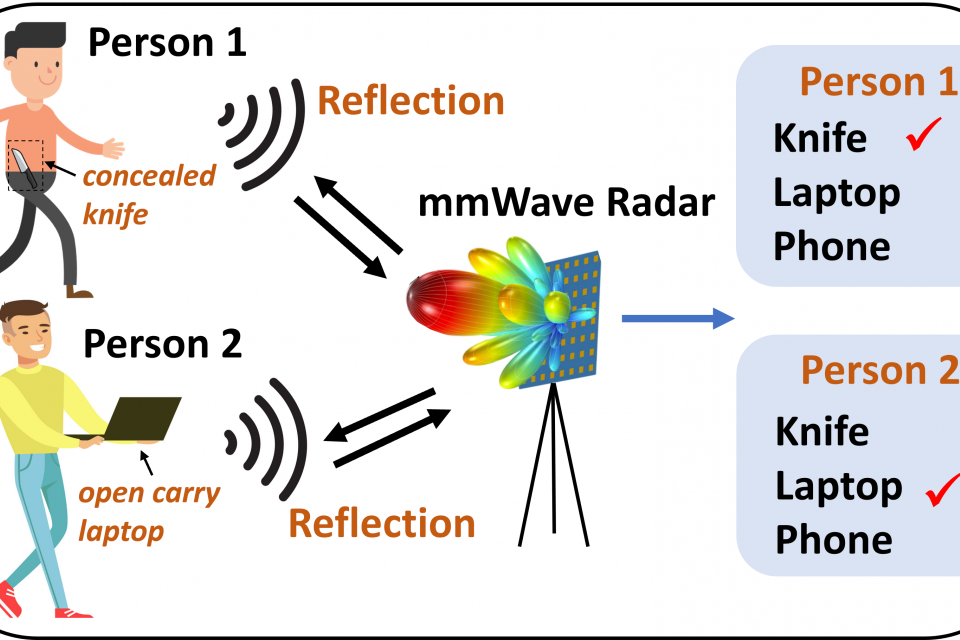Datasets
Standard Dataset
Raw ADC Data of 2D-MIMO MMWave radar for Carry Object Detection
- Citation Author(s):
- Submitted by:
- Xiangyu Gao
- Last updated:
- Tue, 12/13/2022 - 18:17
- DOI:
- 10.21227/begn-ye78
- Data Format:
- Research Article Link:
- Links:
- License:
 1450 Views
1450 Views- Categories:
- Keywords:
Abstract
In this dataset, we provided the raw analog-to-digital-converter (ADC) data of a 77GHz mmwave radar for the carry object detection scenario. The overall dataset contains approximately 3000 frames of radar data as well as synchronized camera images and labels. For each radar frame, its raw data has 4 dimensions: samples (fast time), chirps (slow time), transmitters, and receivers. The experiment radar was assembled from the TI cascaded-chip TIDEP-01012 board, with 12 transmit antennas and 16 receive antennas. With time-division multiplexing on all transmitters, it can form a large 2D-MIMO virtual array with 192 elements, resulting in fine azimuth resolution (1.35°) and additional elevation resolution (19°).
The data collection was done in the building lobby and laboratory room with the focus of capturing the data for three main objects carried by individuals: phones, laptops, and knives (including metallic butter knives and cutting knives). Each object can either be openly carried or concealed. A single data collection run consisted of a subject holding one of the three objects listed above, and walking at a normal pace on a random path for 10 seconds in front of the testbed. To add variability to the data, the walking pattern of subjects was always randomized and the location of where the objects were concealed or how the objects were openly carried was always changed. More information in terms of dataset structure, format, tools, and radar configuration was described in README documentation.
Included Data Format:
- Raw radar data: *.mat (4 dimension: samples (fast time), chirps (slow time), transmitters, receivers. )
- Camera image: *.jpg
- Labels: *.txt
To utilize this dataset efficiently, please refer to GitHub repository which contains the:
- The README documentation.
- Tools and example codes for reading and parsing data.
- Update or other information.
More from this Author







